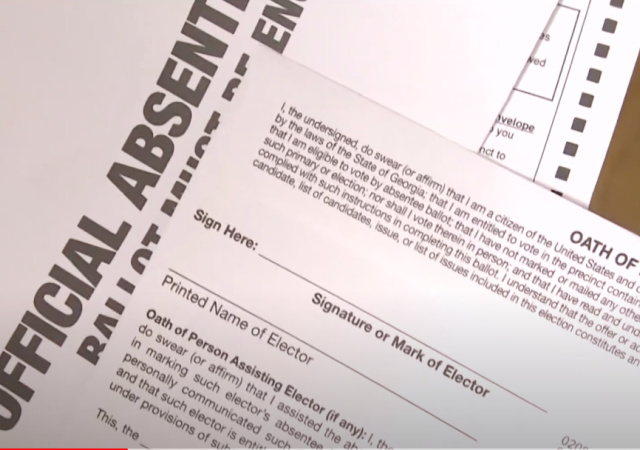Appeals Court Upholds Tennessee Voter Fraud Law Restricting Absentee Ballot Application Distribution

A federal appeals court on Thursday rejected activists’ challenge to a Tennessee voter fraud law. The law restricted the distribution of absentee ballot applications to election officials, which the challengers argued infringed on their First Amendment rights because they wanted “to distribute the form while expressing a political message.”
In a 2–1 decision, a panel of the U.S. Court of Appeals for the Sixth Circuit held that Tennessee’s ban on “distributing a government form” was “conduct, not speech,” and that the law did not keep the plaintiffs from “expressing [their] political message.”
The court acknowledged “the First Amendment provides some protection to ‘expressive conduct,'” however, but found the ban on distributing applications did “not target or impose costs on the Plaintiffs’ actual political speech.”
The court distinguished between laws targeting conduct that incidentally burden speech and laws that target speech directly, providing Title VII, which bars racial discrimination in employment, as an example:
Title VII offers a classic example of such a conduct ban that incidentally burdens speech. The statute bars employers from discriminating on the basis of race in employment decisions. By doing so, Title VII has the practical effect of stopping a store owner from posting a “White Applicants Only” sign in the storefront[.]
The court further distinguished the Tennessee law from laws restricting “political expression” through a prohibition on conduct, such as a Colorado law that banned the use of paid signature gatherers for a state constitutional amendment campaign.
The Supreme Court struck down that law because it directly targeted political speech since the signature gatherers “engaged in ‘both the expression of a desire for political change and a discussion of the merits of the proposed change.'”
By contrast, the Tennessee law did not prevent plaintiffs from advocating their political positions.
The plaintiffs also argued the ban was “outdated” because Tennessee “election officials now make the [application] form widely available online.” The court rejected this argument:
[T]he Plaintiffs may well have articulated several good “policy” arguments about why Tennessee should reconsider [the ban] now that its election officials have posted the official application forms online. But our job is not to decide whether the ban represents good or bad policy. That is the job of the Tennessee legislature.
CLICK HERE FOR FULL VERSION OF THIS STORY